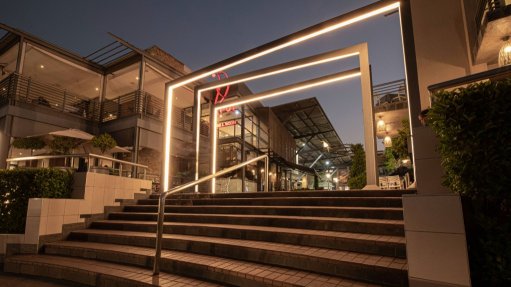Crystal-ball gazing
It’s difficult to tell with any degree of certainty what lies in store for Africa this year, but there seems to be broad consensus that our continent will experience better fortunes on the economic front, with real gross domestic product (GDP) growth predicted by the Economist Intelligence Unit (EIU) to jump from last year’s 2.6% to 3.2%.
This will rank the continent as the world’s second-fastest-growing major region after Asia, which is being propelled by China and India, countries that the International Monetary Fund (IMF) estimates accounted for about half the world’s growth in 2023 and which it expects to repeat the feat this year.
The most dynamic African countries will be members of the East African Community – the Democratic Republic of Congo (DRC), Ethiopia, Kenya, Rwanda, Tanzania and Uganda – where the travel, tourism and hospitality sectors are resurging and transport, logistics, financial services and telecoms continue to be resilient. Resource-intensive economies and major commodity exporters are also expected to make sizeable contributors to continental GDP growth, given the intense competition, and high prices, for hydrocarbons, minerals and agricultural produce.
Those sharing the EIU’s African GDP optimism include the IMF, whose prediction for sub-Saharan Africa is a 4% expansion, a reversal of the slowing to 3.3% that the region witnessed last year. Encouragingly, IMF regional director for Africa Abebe Aemro Selassie said at a media briefing in Marrakech, Morocco, in October that the envisaged growth will be broad-based. For the uninitiated, this term, which was first used in the 1990 iteration of the World Bank’s ‘World Development Report’, refers to growth that involves a range of sectors across a country’s economy. In other words, it combines increased prosperity with greater equity. An oft-used synonym is inclusive growth.
There are downside risks, however, and one of the major ones is elevated inflation, which, as the IMF has pointed out, is in the double-digit range in one-third of the countries in sub-Saharan Africa. The EIU also flags the inflation risk, which it says remains a “central story” for several of the continent’s bigger economies, including Angola, the DRC, Egypt, Ethiopia, Ghana, Nigeria, Sudan and Zimbabwe. The research and analysis entity remarks: “These countries will continue to suffer the economic instability generated by another year of double-digit consumer price inflation, largely driven by elevated oil prices.”
That 2024 is a bumper election year – Algeria, Botswana, Ghana, Mauritius, Namibia, Rwanda, South Africa and Tunisia are all set to go to the polls – creates the possibility of heightened tensions in some countries, especially Algeria and Tunisia. The same can be expected in the DRC, Egypt and Madagascar, where elections were held last month. One hopes that the losers in these elections will follow the example of George Weah. The former football star became Liberia’s President on January 22, 2018, and will be handing over the reins later this month, having lost a runoff election held in November after general elections a month earlier failed to produce an outright winner. As soon as Weah realised he was not going to make it, he placed a call to the victor, Joseph Boakai, congratulating him. For the second time in a row, a smooth transfer of power will be taking place in Liberia.
A quick reflection on the South African elections: multiple polls have indicated that the governing African National Congress (ANC) is unlikely to have an absolute majority, its electoral support having eroded quite dramatically in the past five years as a result of socioeconomic challenges. So, it will likely be forced to form a coalition government. But God forbid that it chooses to co-govern with Julius Malema’s Economic Freedom Fighters (EFF). In that potential coalition, the EFF will be the junior partner, as it will take more than a miracle for the party to increase its National Assembly representation from the current 10.79% to a level above the ANC’s, despite predictions the governing party will dip below 50% for the first time. Malema does not come across as someone who will play second fiddle to someone else. So, having him as a coalition partner won’t end well for the ANC and the country.
Article Enquiry
Email Article
Save Article
Feedback
To advertise email advertising@creamermedia.co.za or click here
Comments
Press Office
Announcements
What's On
Subscribe to improve your user experience...
Option 1 (equivalent of R125 a month):
Receive a weekly copy of Creamer Media's Engineering News & Mining Weekly magazine
(print copy for those in South Africa and e-magazine for those outside of South Africa)
Receive daily email newsletters
Access to full search results
Access archive of magazine back copies
Access to Projects in Progress
Access to ONE Research Report of your choice in PDF format
Option 2 (equivalent of R375 a month):
All benefits from Option 1
PLUS
Access to Creamer Media's Research Channel Africa for ALL Research Reports, in PDF format, on various industrial and mining sectors
including Electricity; Water; Energy Transition; Hydrogen; Roads, Rail and Ports; Coal; Gold; Platinum; Battery Metals; etc.
Already a subscriber?
Forgotten your password?
Receive weekly copy of Creamer Media's Engineering News & Mining Weekly magazine (print copy for those in South Africa and e-magazine for those outside of South Africa)
➕
Recieve daily email newsletters
➕
Access to full search results
➕
Access archive of magazine back copies
➕
Access to Projects in Progress
➕
Access to ONE Research Report of your choice in PDF format
RESEARCH CHANNEL AFRICA
R4500 (equivalent of R375 a month)
SUBSCRIBEAll benefits from Option 1
➕
Access to Creamer Media's Research Channel Africa for ALL Research Reports on various industrial and mining sectors, in PDF format, including on:
Electricity
➕
Water
➕
Energy Transition
➕
Hydrogen
➕
Roads, Rail and Ports
➕
Coal
➕
Gold
➕
Platinum
➕
Battery Metals
➕
etc.
Receive all benefits from Option 1 or Option 2 delivered to numerous people at your company
➕
Multiple User names and Passwords for simultaneous log-ins
➕
Intranet integration access to all in your organisation


















